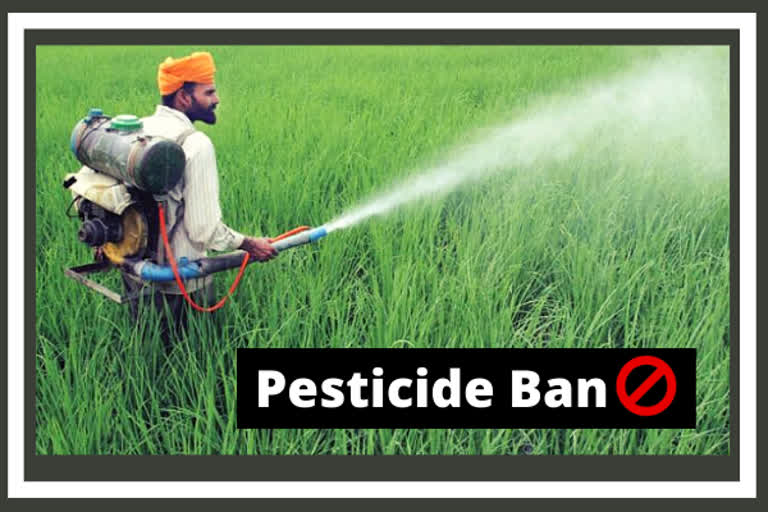Jind/Ludhiana: The Union government’s proposal to ban 27 commonly-used pesticides has evoked a mixed response from a section of the farming community, especially those hailing from the agrarian belts of Haryana and Punjab.
While the last decade was marked by a liberal usage of pesticides, as found in the soils, the subsequent commercialisation of the farming sector gave rise to a rushed use of synthetic chemicals across the country.
In this context, agrarian states like Punjab and Haryana emerged as one of the major consumers of pesticides and soon, all the predicted ill effects of the chemicals became apparent.
Rice and wheat are the main crops cultivated in Haryana, alongside others like corn, sugarcane, pigeon pea (arhar), sesame, beans, winter nuts and cotton. To save their produce from pests and diseases, farmers, in this particular region, used pesticides on over 75% of their produce. Even for gardening, pesticides are used in heavy quantities.
Notably, only 1% of the pesticide is used in killing pests and the rest 99% get mixed in the produce, consequently causing potential illness to those who consume it.
To understand the ban and its implications, ETV Bharat spoke to some of the farmers in Haryana and Punjab.
Randhir and Satbir, farmers from Jind district in Haryana said that though the decision of the government was valid, agricultural farming would be very tough without pesticides. “If there will be weeds in fields, they will cause large scale losses. Ban of these 'medicines' will increase the burden of the farmer, which will mean a higher cost of production,” they said.
Ramfal Kandela, a local farmer, expressing his views, said that while the ban of chemicals is correct, giving an alternative is also necessary.
Farmer Manoj commented that the government took a late decision, as pesticides are banned in many countries for the last 20-30 years.
On the other hand, Rajvinder and Ramjit, farmers from Ludhiana, stated that farmers are forced by circumstances to use pesticides as it helps in increasing productivity.
According to Yogesh Kumar, Head of Department of Insect Science at Choudhary Charan Singh Haryana Agriculture University in Hisar, different vegetables and fruits catch many distinct types of insects and pests. "Farmers use chemicals to control this, if they would not do so, then their produce will suffer as insect-infested vegetables are not bought in the market," said Kumar.
However, he emphasised on the fact that these chemicals should be used as sparingly as possible. "Other than the pesticides, fields must be ploughed as deeply as possible, due to which the harmful larva and pests have no option but to come on the surface, where they get eliminated by birds and sunlight," informed Kumar.
He also asserted that pesticides must be used in regulated quantities and only after the end of the advised waiting period, the produce should be taken to the mandi.
Chief Agriculture Officer of Ludhiana (Punjab) Dr Narinder Pal Singh Beniwal opined that the pesticides proposed to be banned under the government scheme are those which adversely affect human health. He said that the government has taken the correct step and more emphasis will be given to organic farming.
After releasing the notification, the Ministry of Agriculture has given 45 days to businesses and manufacturers to file claims and objections.
Some pesticides that the Union government is planning to ban are sold under the names of Asfate, Ultrijine, Benfaracarb, Butachlor, Captain, Carbedenjim, Cabuprofen, Chlorpyrifos, 2.4-D, Deltamethrin, Dicofall, Dimethot, Dinocap, Mankojeb, Mithomil, Oxyflorin, Sulphisulforen, Thydokerb, Theeram, Geeneb, and Geeram.
ALSO READ: Mango farmers divided over government's pesticide ban in Maharashtra



